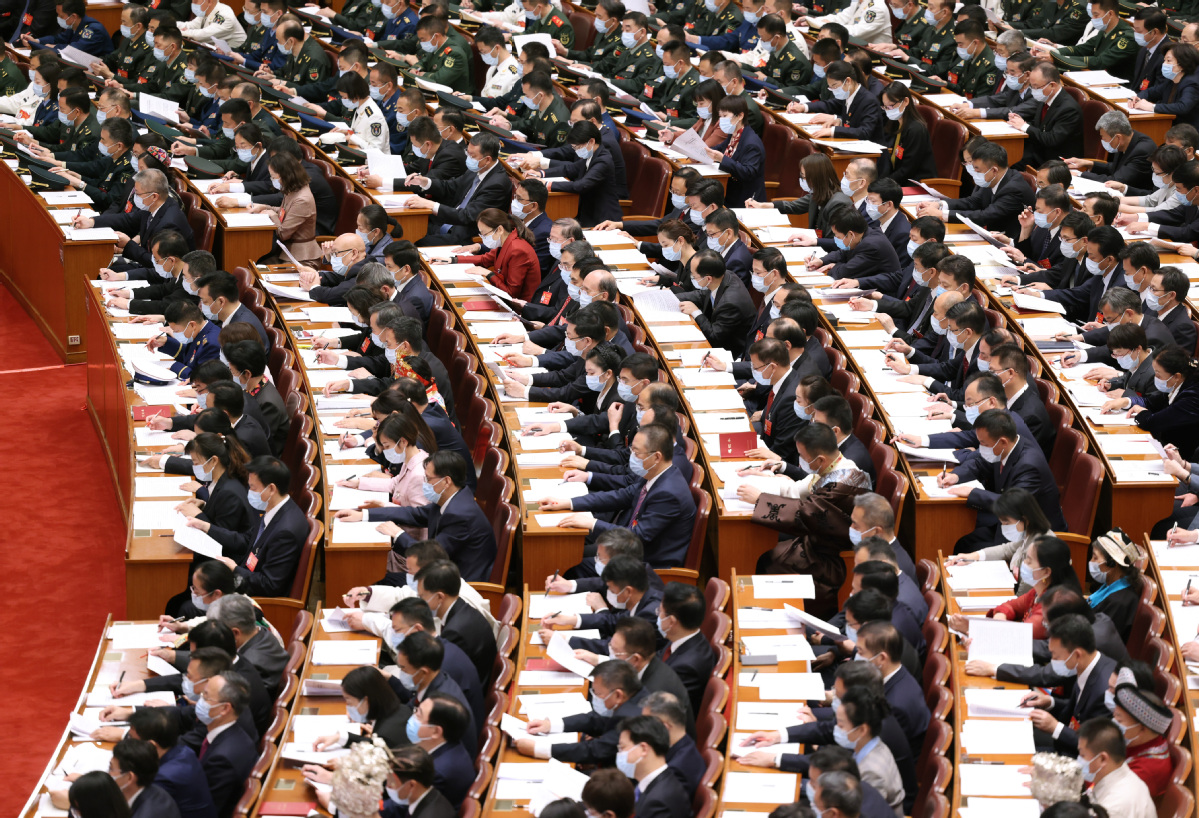Science staff motivated by key report


Experts say they look forward to new prospects for innovation, development
China's scientific community has been inspired by the report delivered by Xi Jinping to the 20th National Congress of the Communist Party of China, and said it will continue to push the envelope of frontier sciences, make original breakthroughs in core technologies, and contribute more to the nation's strategic needs and socioeconomic growth.
The report, delivered by Xi on Sunday on behalf of the 19th CPC Central Committee, said that education, science and technology, and human resources are the foundational and strategic pillars for building a modern socialist country in all respects.
"We must regard science and technology as our primary productive force, talent as our primary resource, and innovation as our primary driver of growth," he said.
China has emerged over the last decade as an innovative nation, rising from 34th in 2012 to 11th in 2022 on the Global Innovation Index published by the World Intellectual Property Organization.
The report also highlighted China's numerous breakthroughs in key fields, including manned spaceflight, lunar and Martian exploration, deep-sea and deep-earth probes, supercomputers, satellite navigation, quantum information technology, nuclear power technology, airliner manufacturing and biomedicine.
Long Haibo, a researcher of the Development Research Center of the State Council, said that without progress in science and technology, innovation cannot occur, and human resources are the pillar that supports progress in science and technology and high-quality development.
These are interconnected and mutually reinforcing ideas that are crucial for China's development in the new era, he told Science and Technology Daily.
The China Association for Science and Technology said the report has established the objectives and directions that will lead China's science planning and development.
"The report is a guiding document that has proposed new ideas, new strategies and new measures to transform the nation into a modern socialist country in all aspects, and move toward fulfilling the second centenary goal" of China becoming a great modern socialist country in all respects by 2049, it said.
One of the key takeaways from the report that generated a great deal of interest among Chinese science workers was the idea of opening new venues and drivers for development.
Jin Li, president of Fudan University and an academician of the Chinese Academy of Sciences, said being an educator and a scientist, he felt a sense of immense responsibility when pursuing the second centenary goal.
The university will train more quality professionals, make more original breakthroughs and use innovations to serve the country, he added.
Huang Wei, a noted organic electronics expert and an academician of the Chinese Academy of Sciences, said his team recently made a breakthrough in building integrated photovoltaics, which essentially turns the exterior of a building into a solar farm that can generate electricity.
This is an example of a technological breakthrough opening new economic opportunities and fulfilling the nation's needs in terms of green development, he said.
- Major airport in Guangzhou sees record passenger throughput
- China launches new project to support young scientists
- Big lottery winners in Guangzhou claim prize
- No indication of big earthquake to occur in Ningxia, said officials
- Rural China tackles hefty bride prices to ease marriage burdens
- 8 killed, 15 injured in market fire in North China's Hebei





































